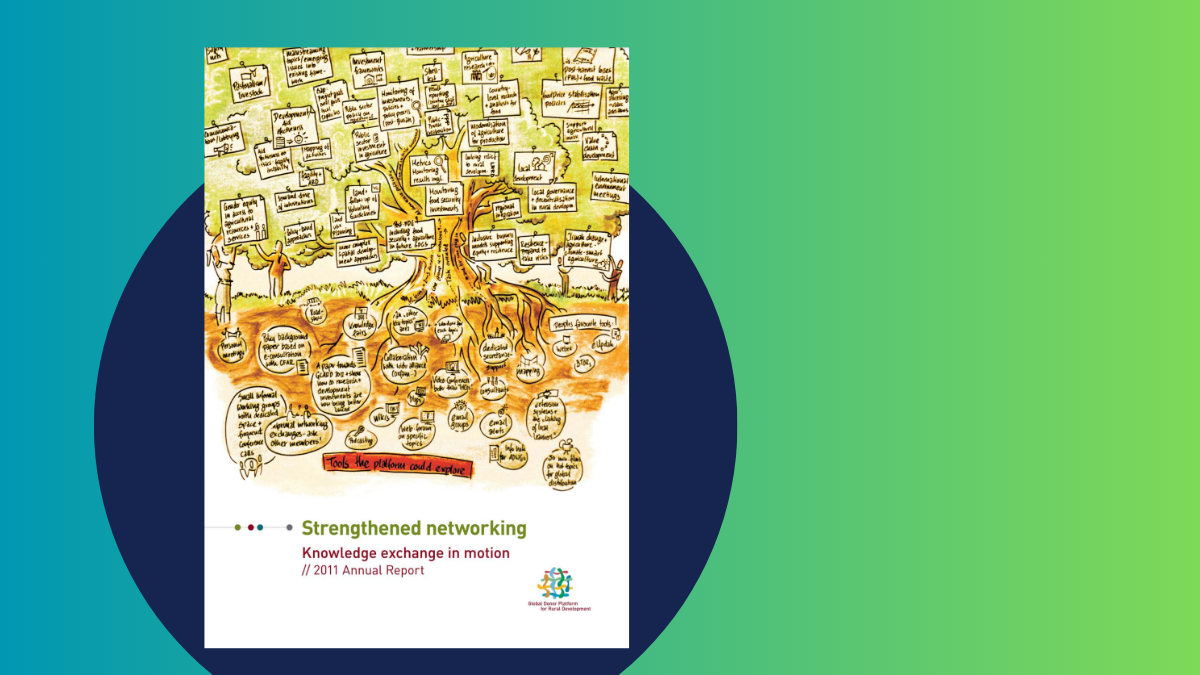Knowledge exchange in motion
In 2011, Platform members developed new strategies to improve agricultural production, increase access to markets, manage risk, and improve the livelihoods of rural people.
Download the 2011 Annual Report

Over the past year, the global economic downturn, spikes in food prices, food shortages and drought pushed another 100 million people into poverty and put many countries at risk of humanitarian crisis. This is in addition to the 1.2 billion people already living below the extreme poverty line of USD 1.25 a day. Three out of every four of these poor live in rural areas and almost all remain dependent upon agriculture.
What is clear is that it is not business as usual. The landscape for development of agriculture is rapidly changing. New actors—the private sector, emerging countries—are expanding their outreach to put more food on the market thereby creating opportunities but also engendering risks for smallholder farmers, pastoralists, and small businesses in developing countries. The Platform is a forum where members exchange experiences and develop—to the extent possible—a common understanding of the issues at stake and appropriate responses—responses that will protect the livelihoods of vulnerable groups while getting the most out of investments in agriculture.
As donors, the financial crisis has affected, and may continue to affect, their ability to respond effectively to challenges such as droughts in the Horn of Africa and the Sahel. Donors need to improve existing practices to achieve results with limited means. On the other hand, the private sector and investors from emerging economies are investing heavily in agriculture and food security opening up new opportunities for partnerships to feed and nourish a population of 9 billion in 2050.
This report reflects on events aimed at redefining the role of donors, not only as development fund providers, but also as catalysts for innovation through agricultural research and information sharing, through new instruments to engage with governments, the private sector and civil society, and through global efforts to better understand the changing face of agriculture and food security in a global economy.
The Platform’s 2011 Annual General Assembly held in January 2012 focused on strategies to build resilience among vulnerable groups in developing countries. The meeting was a resounding success with most agencies participating and new priorities emerging for the work of the Platform in the coming years. These include work streams that focus on reducing post-harvest losses, engaging with the private sector to leverage private investment, improving the quality and relevance of agricultural research, enhancing the nutritional status of children and women, and engaging with Africa’s efforts to improve agricultural productivity as well as domestic and foreign investments in agriculture and food security.
In 2011, the Platform continued its dual role as advocate and knowledge broker. With its members, it worked to keep ARD and FS on the development agenda, advocating for increased and more effective aid. It also promoted knowledge exchange among its members to reduce duplication and enhance capacities to deliver more effective and coherent support to ARD and FS in developing countries.
Publication date: June 2012
Share
More Publications

















































































































































































































